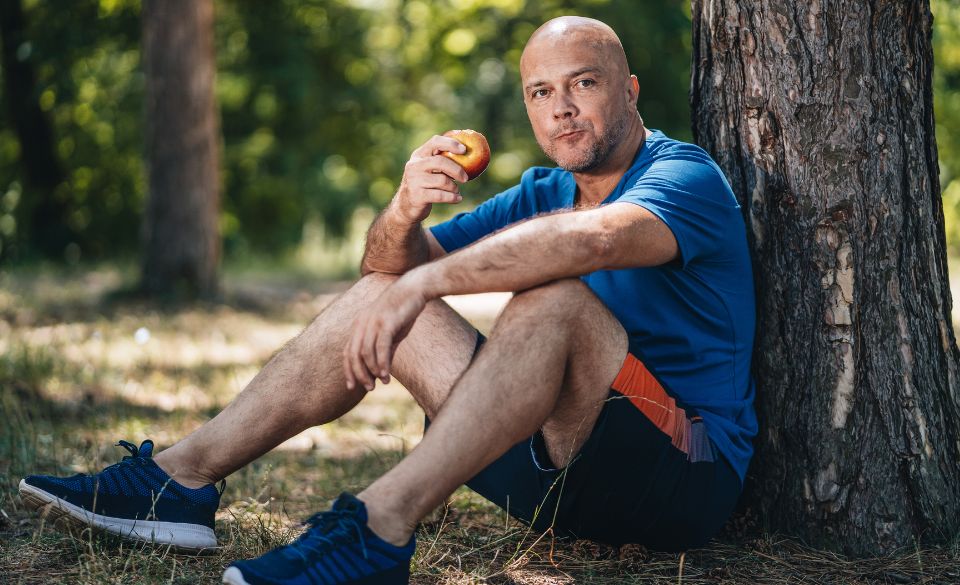
Can You Run After Eating – A Complete Guide
Page Contents
We’ve all heard the age-old advice to wait at least an hour after eating before engaging in physical activity, especially running. But is there any truth to this claim? Can you really not run after eating? In this blog post, we’ll explore the topic and uncover whether it’s safe and beneficial to hit the pavement after a meal. So, grab a snack and let’s find out if you can lace up your running shoes right after eating!
The Digestive Process and Physical Activity
To understand the implications of running after eating, it’s important to have a basic understanding of the digestive process. When you eat, your body begins to break down the food you’ve consumed to extract nutrients and provide energy. This process involves the secretion of digestive enzymes, increased blood flow to the stomach and intestines, and the absorption of nutrients into the bloodstream.
Engaging in intense physical activity, such as running, diverts blood flow away from the digestive system and redirects it to the muscles and organs involved in exercise. This can potentially disrupt the digestion process, leading to discomfort, cramping, and a feeling of heaviness in the stomach.
Timing and Portion Control
While it’s generally recommended to wait a couple of hours after eating before running, the exact timing can vary depending on the individual and the size and composition of the meal. A small, easily digestible snack may not require as much time for digestion as a large, heavy meal. It’s a good idea to listen to your body and pay attention to how you feel after eating before deciding to run.
If you’re planning to run after a meal, consider opting for a lighter meal or snack that provides a balance of carbohydrates and protein. This can help provide a steady source of energy without overwhelming your digestive system. Additionally, allowing some time for digestion, even if it’s just 30 minutes to an hour, can help minimize the risk of discomfort while running.
The Benefits of Running After Eating
Contrary to popular belief, running after eating can have some benefits. Running on a well-fueled body can provide you with the necessary energy to perform at your best. The carbohydrates from your meal are stored as glycogen in your muscles and liver, and running after eating can help optimize these glycogen stores, allowing you to sustain your energy levels for longer.
Additionally, running after a meal can help promote digestion. The increase in physical activity stimulates the movement of food through the digestive system, potentially aiding in the breakdown and absorption of nutrients. It can also help regulate bowel movements and prevent issues such as constipation.
However, it’s important to note that running after eating may not be suitable for everyone. Individuals with certain medical conditions, such as gastroesophageal reflux disease (GERD), may experience symptoms exacerbated by running after a meal. It’s always best to consult with a healthcare professional if you have any concerns or pre-existing conditions that may impact your ability to run after eating.
What happens if I run after eating?
Running after eating can lead to various physiological responses and experiences. Here are some potential outcomes:
1. Digestive Discomfort: Running after a large or heavy meal can cause discomfort in the form of cramping, bloating, or a feeling of heaviness in the stomach. This is because running diverts blood flow away from the digestive system to the muscles, which can hinder the digestion process and result in these uncomfortable sensations.
2. Reduced Performance: Running with a full stomach may affect your performance. The body’s energy is divided between digestion and running, potentially leading to a decrease in overall running performance. You may feel sluggish or have less energy due to the body’s focus on the digestive process rather than fueling your muscles for exercise.
3. Gastrointestinal Issues: Running after eating can increase the likelihood of experiencing gastrointestinal issues such as acid reflux, heartburn, or indigestion. The bouncing motion and increased abdominal pressure during running can exacerbate these symptoms, leading to discomfort and potentially affecting your running experience.
4. Varying Levels of Comfort: The impact of running after eating can differ among individuals. Some people may have no issues or discomfort and can run comfortably right after eating, especially if they consume smaller, easily digestible meals or snacks. Others may experience more pronounced discomfort and prefer to wait for a period of time before running.
It’s important to note that these potential outcomes can vary depending on factors such as the size and composition of the meal, individual digestion rates, and personal tolerance levels. It’s advisable to listen to your body, pay attention to any discomfort or signals of digestive distress, and make adjustments to your running routine accordingly.
If you decide to run after eating, consider choosing lighter meals or snacks that are rich in easily digestible carbohydrates and lower in fat and fiber. Allow some time for digestion, usually around 1-2 hours, before heading out for your run. Experiment with different timing and meal choices to find what works best for you and enables you to run comfortably without compromising your digestive well-being or performance.
Final Words
So, can you run after eating? The answer depends on various factors, including the timing, portion size, and individual preferences and tolerances. While it’s generally recommended to wait for some time after eating before engaging in intense physical activity like running, lighter meals or snacks may require less time for digestion.
Ultimately, it’s crucial to listen to your body and assess how you feel after eating. If you experience discomfort, heaviness, or any digestive issues, it may be best to wait a bit longer before running. On the other hand, running after eating can provide you with a source of energy and promote digestion.
Remember, everyone’s body is unique, so it’s important to find what works best for you. Experiment with different timing and meal choices to determine what allows you to run comfortably and perform at your best. Whether you choose to wait for a couple of hours after eating or prefer a lighter snack before your run, the key is to find a balance that suits your body and helps you enjoy your running experience.
Studies have explored the effects of running after eating and have yielded interesting findings. A study published in the Journal of Science and Medicine in Sport examined the impact of running immediately after a meal versus waiting for three hours. The results showed that running immediately after a meal did not significantly affect digestion or nutrient absorption compared to waiting for three hours. This suggests that running after eating may not necessarily hinder the digestive process.
Another study published in the International Journal of Sport Nutrition and Exercise Metabolism found that consuming a carbohydrate-rich meal two hours before running improved endurance performance compared to running in a fasted state. This highlights the potential benefits of having a well-fueled body for running.
It’s important to note that each individual is unique, and what works for one person may not work for another. Some individuals may feel comfortable running immediately after eating, while others may need more time for digestion. Pay attention to your body’s signals and make adjustments accordingly.
In conclusion, running after eating can be a personal choice influenced by factors such as timing, portion control, and individual preferences. While it’s generally recommended to wait for a period of time after eating before engaging in intense physical activity, lighter meals or snacks may require less digestion time. It’s crucial to listen to your body and find the right balance that allows you to run comfortably and perform at your best. Whether you choose to wait or run after eating, the most important thing is to enjoy your run and maintain a healthy and balanced approach to fueling your body.



